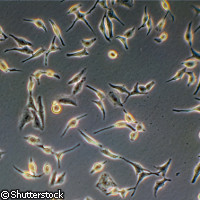EU-funded researchers tackle cervical cancer
Cervical cancer is the second most common cancer worldwide; each year some 60,000 women in Europe alone are diagnosed with the disease, and around half of these cases will prove fatal. Nipping the problem in the bud is made difficult when the disease is not detected and treated early enough. Supported by the EU with EUR 2.63 million in funding, the ASSIST ('Association studies assisted by inference and semantic technologies') project aimed to fix this problem by creating technological links between medical centres specialising in cervical cancer diagnosis and treatment, as well as fuelling data exchange and building a larger data repository. While scientists accept that the human papillomavirus (HPV) is the central risk factor for cervical cancer, they also recognise that HPV is not the only culprit. Researchers have been assessing the role of specific genetic and environmental factors in determining HPV-persistence and the subsequent progression of disease. Past studies have hinted at pathogenetic mechanisms that could provide new markers of risk, diagnosis and prognosis and potentially lead to new targets for treatment. The ASSIST project set out to combine the different kinds of data gathered by the researchers; automate the process of evaluating medical hypotheses; provide an inference engine capable of assessing material statistically; bring together the patient records repositories of the participating institutions; and develop graphical, expressive tools for medical researchers to post their queries. Medical researchers use association studies to identify common factors behind diseases. They assess clinical data from hospital tests, lifestyle data (e.g. smoking and eating habits) and genetic data. The researchers also compare data from patients with that of healthy patients. 'What we are trying to do is to allow medical researchers working in specialist hospitals and medical centres to use each others' data, and combine the data into a bigger pool to work with,' Professor Pericles Mitkas of the Centre for Research and Technology - Hellas, Informatics and Telematics Institute, Greece said. 'The problem is, each hospital uses different formats, different rules for storing data, even for exactly the same tests,' the project coordinator said. 'Even within hospitals, each doctor might have his or her own way of doing things.' Professor Mitkas noted that to date the greatest achievement of ASSIST was strengthening the dialogue between medical doctors, molecular biologists and computer scientists. 'They are talking to each other and finally understanding each others' technical language,' he explained. Three hospitals from Belgium, Germany and Greece took part in the first part of the project. After agreeing on the common terminology and how the data should be represented and accessed, the research team developed a prototype software platform that ensures researchers receive data that are in the format requested. 'We do this by semantic representation, which means we assign an interpretation to each value to help the computer understand what each value refers to,' the project leader said. 'We also facilitate interpretation of subjective values like "high risk" and "low risk", "serious cases" and "non-serious cases", and use inferencing techniques which are based on a set of medical rules provided by doctors to tell the computer which results are more valid than others,' he said. 'Biopsy results, for example, are more conclusive than Pap test results and may point to a pre-cancer stage that a Pap test did not reveal.' The ASSIST prototype platform gave researchers access to patients' records at the three hospitals' departments of gynaecology and obstetrics. 'We add extra functionality as we go along, but at least the doctors now have something to work with and evaluate,' Professor Mitkas said. 'Further down the line, understanding the path to the disease and the factors that affect it will help individual doctors diagnose it earlier, prevent it by giving directions to their patients, and develop drugs or procedures that will cure the disease,' he said. 'But ASSIST is primarily a tool for medical researchers, and the results of their research will benefit all women.'



